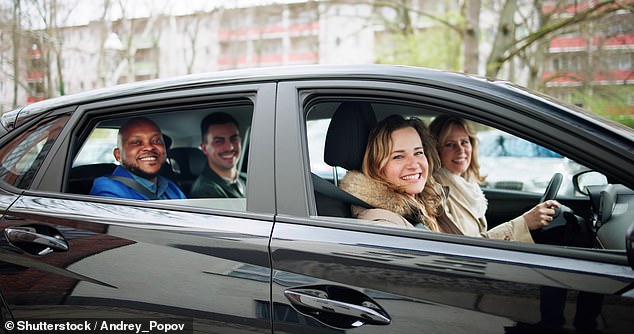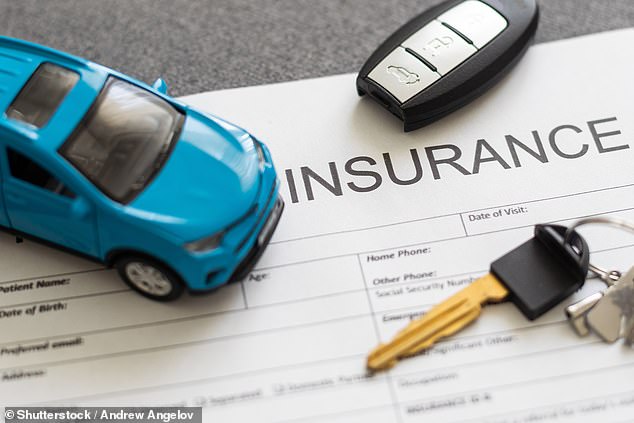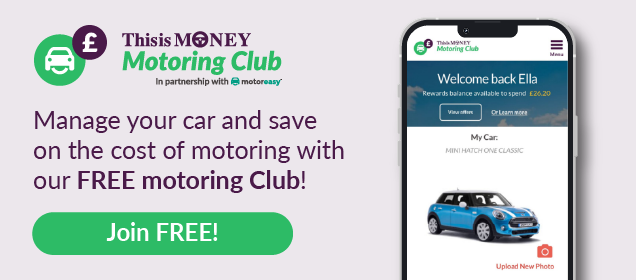Summer is the time for road trips, family gatherings, and excursions with friends, with many people choosing to share lifts for enjoyment and convenience.
But drivers have been warned that charging your friends for lifts could land you in very hot water with your insurance provider.
Car insurance experts at MoneySuperMarket have urged caution about asking friends to chip in to cover petrol money, especially if they’re charging more than the journey actually costs.
This is because the harmless activity of offering lifts to mates could actually be interpreted by insurers as a profit-making activity if you overcharge for fuel.
Blurring the lines between cost sharing and commercial gain could potentially invalidate your policy, leaving you uninsured without realising it, and liable to severe consequences.
Alice Hempsted, car insurance expert at MoneySuperMarket, said: ‘If you’re in an accident under these conditions [making a mark-up on fuel costs], your insurer could reject your claim or even cancel your policy entirely. That’s not just costly – it could lead to fines or prosecution for driving without insurance.’

Sharing lifts is good for the environment and the wallet but it could lead to serious consequences if you charge your passengers too much for petrol and make a profit. You could invalidate your insurance experts are warning
MoneySuperMarket says that the difference between charging a mate £10 for fuel when their share was only £5 can be all it takes to invalidate insurance.
Hempstead explains that insurers ‘may view that as profit’.
‘That small mark-up could shift you into the ‘hire and reward’ category, which entails transporting people for money, which isn’t covered by most personal car insurance policies,’ she elaborated.
And the consequences can be severe.
If you’re involved in an accident under these conditions, insurers could void your policy from the beginning, meaning it’s treated as if it never existed. They may also refuse to pay out for any damages or injuries, and in some cases, report you for driving without valid insurance.
‘This isn’t just about a rejected claim,’ Hempstead cautions. ‘You could be left with huge out-of-pocket costs, points on your licence, or even a prosecution for uninsured driving.’

Just overcharging £5 could be ‘viewed as making a profit’ by your car insurance provider and invalidate your insurance. ‘Dire’ consequences include having a void policy, and your insurer refusing to pay out for damage or injuries, MoneySuperMarket experts are cautioning
What is allowed when you lift share?
The line is clear between sharing costs and making a profit.
Hempstead says: ‘HMRC and the Association of British Insurers both acknowledge that genuine cost-sharing is allowed.
‘But the moment you start earning, even a small amount, it could be viewed as commercial activity.’
How to make sure you’re only charging the right amount
MoneySuperMarket warns motorists to only ever ask passengers to cover what the trip actually costs you in fuel and vehicle costs.
An easy way to do this is to use the HMRC mileage rate; the (current) 45p per mile rate covers fuel, everyday wear and tear like servicing, insurance and tyres.
There are fuel cost calculators online too which are a useful way to check you’re charging your passengers the right amount.
It’s also wise to carefully review your car insurance policy to check if there are specific allowances for lift sharing.

Never advertise lifts or regularly offer people outside your household lifts and then charge more than the exact amount that petrol and vehicle wear costs
Other issues relating to giving lifts
There are several behaviours that raise red flags with insurers MoneySuperMarket warns.
Regularly offering people outside your household lifts in exchange for money is inadvisable, as is charging more than the actual cost of fuel and vehicle wear (as we’ve covered).
Advertising your availability for lifts on social media or online forums could also be interpreted as providing a paid-for service – so avoid doing either of these.
If you are considering using your car for more regular income, then you need to make sure you take out the proper insurance.
Hempstead says: ‘If for example you’re thinking about driving for Uber or doing delivery work, you need the proper business use or ‘hire and reward’ cover.
‘It’s worth comparing quotes to get the right protection for how you use your vehicle.’












